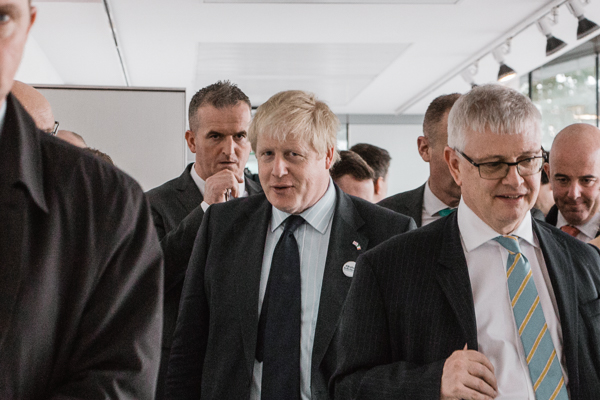We recently held the first Audit and Risk Committee meeting of the academic year for our university. High on the list of risks considered was the potential impact of leaving the EU on our university. The difficulty for us and all other UK universities is that, whilst we understand the risks and challenges are significant, the absolute lack of clarity as to the nature of future arrangements is almost a larger problem.
As a university, we are faced with three broad areas of uncertainty. These relate to staff, students and research funding and partnerships.
For our university, around 12 per cent of our staff are EU nationals and they are contributing enormously across the academic and professional portfolios. From the day of the referendum, there has been for them a palpable sense of insecurity as to what their future in the UK will look like. In addition, it is becoming more challenging to attract new applicants from Europe to fill vacancies. What is needed is certainty around the status of existing employees and clarity around future visa arrangements. Whilst we would like to see a future that allows the free movement we currently have, if this is not to be the case, then clarity around future skilled migration visa arrangements that minimise barriers is vital and urgently required.
From the day of the referendum, there has been for them a palpable sense of insecurity as to what their future in the UK will look like
About eight per cent of our student body holds EU passports and access their education on the same terms as UK students. Whilst others have a higher proportion of EU students, this is still a significant number, whose loss will make a material difference to us and many other institutions. Personally, I cannot see a future whereby the current arrangements continue. We expect at the end of any agreed transition period to see EU students regarded in the same way as we currently consider other international students. This will most likely see the numbers of EU students studying at UK universities fall precipitously as those enrolled under transition arrangements finish their studies.
At a time when domestic school-leaver numbers are still falling, this change will significantly challenge a number of institutions. The hope that I and many of my colleagues hold is that we will see a more rational approach to international students from government and that some of the barriers to international recruitment will be relaxed, which will help mitigate these changes and undo some of the damage that has been done to our international reputation as a welcoming destination for international students.
EU-supported student mobility programmes such as Erasmus have greatly enriched student experience and we are looking at how we can continue to work with European partners to maintain linkages and opportunities for our students.
We hope that, even if we are outside of the EU, our UK government will continue to contribute to EU research funding
As a relatively young university, our research portfolio is much smaller than many of our longer-established peers, but it is growing rapidly. Much of this growth has been possible through success with EU-funded research programmes. Indeed, over 75 per cent of our grant income comes through the EU. The potential loss of this funding is clearly significant, but also what is at risk are funding mechanisms that facilitate transnational research collaborations.
We welcome the UK government’s commitment to increase research and innovation investment but it is vital that there are ongoing mechanisms that support transnational research. We have seen really significant benefits in working with EU partners. What such arrangements will look like is, again, uncertain. We hope that, even if we are outside of the EU, our UK government will continue to contribute to EU research funding in a way that enables UK universities to bid as both leader and partner.
As a university, we are looking at how we can grow and strengthen the partnerships that have been forged through EU collaborations so that we can mitigate some of the impacts of leaving the EU, while reluctantly recognising that much will change. This is not where many in our university community wanted to be but, recognising the political reality, what is needed now is clarity in these three key areas so that we and the wider university sector can plan for the next five years with far greater certainty than we can now.
Iain Martin is the Vice-Chancellor of Anglia Ruskin University.







